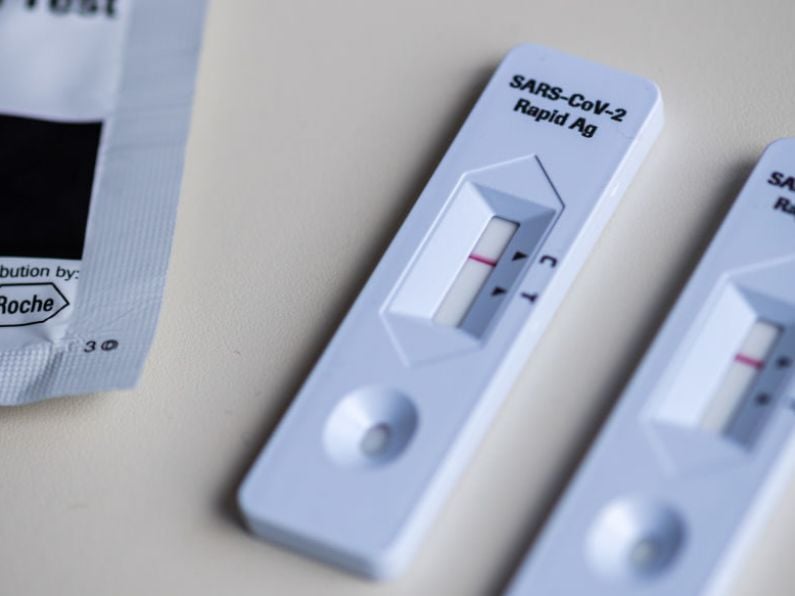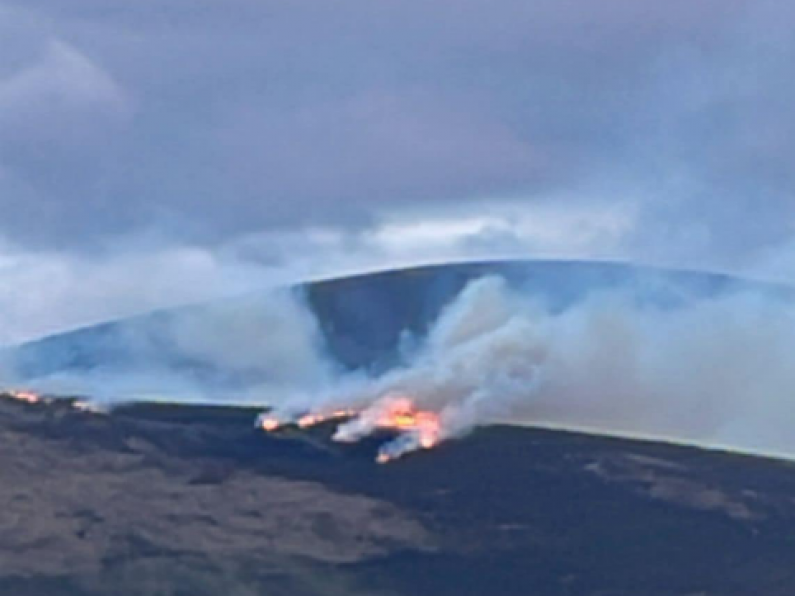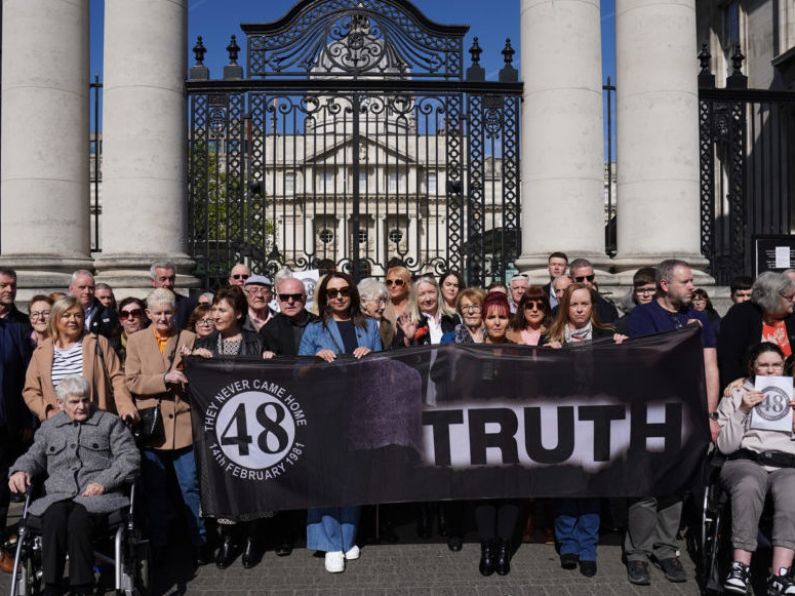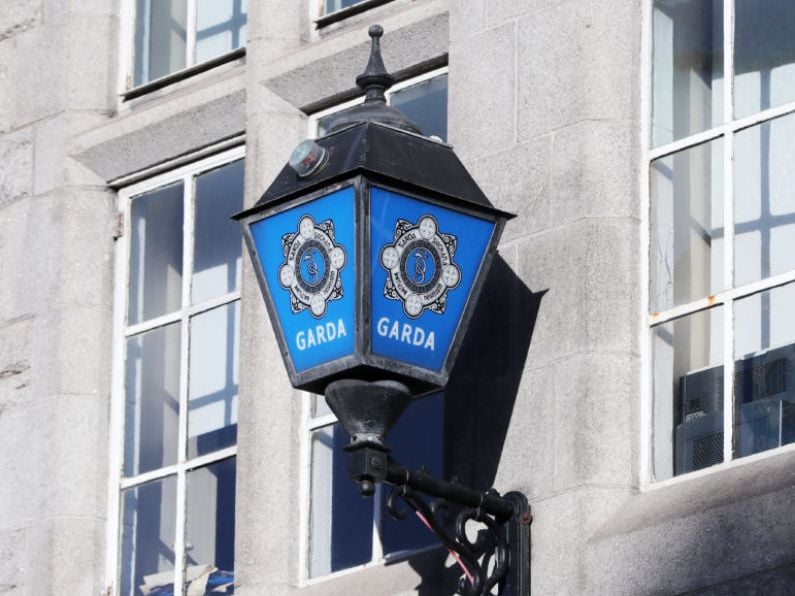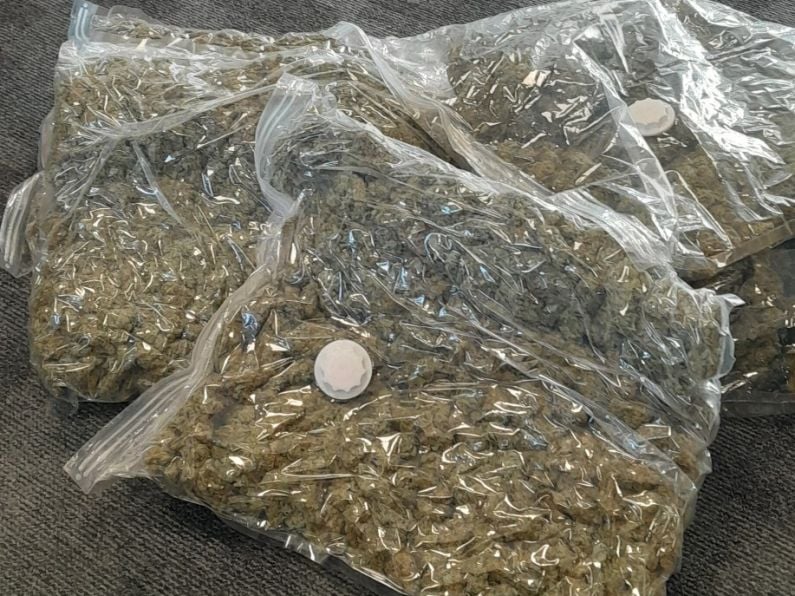Additional reporting by Olivia Kelleher
NPHET and Cabinet have approved an easing of restrictions on self-isolating.
Previously anyone who was a close contact had to self-isolate, as well as those who have contracted COVID-19, but the rules have now been changed.
For those who have been close contacts with a case but are asymptomatic do not now have to self-isolate, but have to wear a well-fitted medical grade or FFP2 face mask for 10 days.
They should also take regular antigen tests over 7 days, with the last test on day 7.
However, the HSE Live has been inundated with calls from confused COVID-19 cases and those in their household, with people waiting over a half-hour for a reply, and HSE Live operators struggling to cope with the onslaught of specific cases.
So what exactly do you have to do if you do come into close contact with the virus?
I have symptoms of COVID-19
- Anyone with symptoms should immediately self-isolate and get tested.
- Those aged 0-3 and over 39 years old and all healthcare workers should seek a PCR test.
- Everyone else (that is everyone aged 4-39) should use repeated antigen tests. If you have a positive antigen result, you should regard it as definitive and register it with the HSE – a PCR confirmation is not required.
- If you have an underlying health condition, and you have symptoms of COVID-19, talk to your GP by phone.
- Regardless of negative results, anyone with symptoms should continue to self-isolate until 48 hours after symptoms have substantially or fully resolved.
- All those aged 13 years and older with symptoms should use a well-fitted medical grade or FFP2 face mask, including when they may be at risk of coming into contact with others in their household.
- Children aged 9-12 years old with symptoms should wear a well fitted mask, including when they may be at risk of coming into contact with others in their household.
If I have a positive test result
- All those with a positive test result, PCR or antigen, should isolate for a minimum of 7 days.
- Those with symptoms should isolate for 7 days from the date of onset of symptoms.
- Those without symptoms should isolate for 7 days from the date of the first positive test (PCR or antigen).
- Ending of self-isolation after seven days is on the basis that symptoms have substantially or fully resolved for the final two of those seven days.
- All those aged 13 years and older with a positive result should use a well-fitted medical grade or FFP2 face mask for 10 days, including when they may be at risk of coming into contact with others in their household.
- Children aged 9-12 years old with a positive result should wear a well fitted mask for 10 days including when they may be at risk of coming into contact with others in their household.
- All positive cases should, for 10 days (including 7 days self-isolation):
- limit close contact with people outside their household, especially in crowded, enclosed or poorly ventilated spaces
- wear an appropriate face mask in crowded, enclosed or poorly ventilated spaces and where they are in close contact with other people
- avoid contact with anyone who is at higher risk of severe illness if infected with COVID-19
- follow all public health protective measures.
I am a close contact, aged 13 and older, AND boosted
- All close contacts aged 13 and older who have had their booster vaccine should use a well-fitted medical grade or FFP2 face mask for 10 days. They should take regular antigen tests over 7 days, with the last test on day 7. There is no requirement to restrict movements (unless they become symptomatic), but they should fully adhere to protective measures (as below).
- Those of any age who have recovered from COVID-19 following a positive PCR or antigen test carried out since 1st December 2021 are not required to restrict movements or test unless they become symptomatic. If they become symptomatic, they should immediately self-isolate, get tested and wear a mask as appropriate.
- It is prudent for all close contacts to adhere to protective measures for 10 days:
- limit close contact with people outside their household, especially in crowded, enclosed or poorly ventilated spaces
- wear an appropriate face mask in crowded, enclosed or poorly ventilated spaces and where they are in close contact with other people
- take an antigen test before entering crowded, enclosed or poorly ventilated spaces and prior to having close contact with other people from outside their household
- avoid contact with anyone who is at higher risk of severe illness if infected with COVID-19
- follow all public health protective measures.
I am a close contact, aged 13 and older, NOT boosted*
- Close contacts aged 13 years and older who are not boosted should use a well-fitted medical grade or FFP2 face mask for 10 days and restrict their movements for 7 days. They should also take regular antigen tests over 7 days, with the last test on day 7. They should also fully adhere to protective measures (as below).
- Boosters offers protection against serious illness from COVID-19. Please visit www.hse.ie and make arrangements to receive your third dose of COVID-19 vaccine.
- Close contacts of any age who have recovered from COVID-19 following a positive PCR or antigen test carried out since 1st December 2021 are not required to restrict movements or test unless they become symptomatic. If they develop symptoms, they should immediately self-isolate, get tested and wear a mask as appropriate.
- It is prudent for all close contacts to adhere to protective measures for 10 days (including the 7 days of restricted movements):
- limit close contact with people outside their household, especially in crowded, enclosed or poorly ventilated spaces
- wear an appropriate face mask in crowded, enclosed or poorly ventilated spaces and where they are in close contact with other people
- take an antigen test before entering crowded, enclosed or poorly ventilated spaces and prior to having close contact with other people from outside their household
- avoid contact with anyone who is at higher risk of severe illness if infected with COVID-19
- follow all public health protective measures.
Boosted are those who are 7 days post their booster vaccine OR who have completed their primary vaccination course and had an infection in the past 3 months
I am a close contact, aged 13 and older, who has not had a full primary course of COVID-19 vaccine (I am not vaccinated/primary vaccination course not completed)
- Close contacts aged 13 years and older who have not had a primary course of COVID-19 vaccine should use a well-fitted medical grade or FFP2 face mask for 10 days and restrict their movements for 7 days. They should also take regular antigen tests over 7 days, with the last test on day 7 and should fully adhere to protective measures (as below).
- Vaccination offers protection against serious illness from COVID-19. Please visit www.hse.ie and make arrangements to receive your dose of COVID-19 vaccine.
- Close contacts of any age who have recovered from COVID-19 following a positive PCR or antigen test carried out since 1st December 2021 are not required to restrict movements or test unless they become symptomatic. If they develop symptoms, they should immediately self-isolate, get tested and wear a mask as appropriate.
- It is prudent for all close contacts to adhere to protective measures for 10 days (including the 7 days of restricted movements):
- limit close contact with people outside their household, especially in crowded, enclosed or poorly ventilated spaces
- wear an appropriate face mask in crowded, enclosed or poorly ventilated spaces and where they are in close contact with other people
- take an antigen test before entering crowded, enclosed or poorly ventilated spaces and prior to having close contact with other people from outside their household
- avoid contact with anyone who is at higher risk of severe illness if infected with COVID-19
- follow all public health protective measures.
I am a close contact aged 12 or under, who is a household contact of a confirmed case
- Children aged 9-12 years old who are a household contact of a confirmed case should wear a well fitted mask for 10 days, including when they may be at risk of coming into contact with others in their household.
- All those aged 12 and under who are household contacts of a confirmed case should restrict their movements for 7 days.
- Children aged 4-12 should take regular antigen tests over 7 days, with the last test on day 7.
- Those age 0-3 should only take a PCR test if they are symptomatic.
- Those of any age who have recovered from COVID-19 following a positive PCR or antigen test carried out since 1st December 2021 are not required to restrict movements or test unless they become symptomatic. If they develop symptoms, they should immediately self-isolate, get tested and wear a mask as appropriate.
- It is prudent for all close contacts to adhere to protective measures for 10 days (including the 7 days of restricted movements)
- limit close contact with people outside their household, especially in crowded, enclosed or poorly ventilated spaces
- wear an appropriate face mask in crowded, enclosed or poorly ventilated spaces and where they are in close contact with other people
- those aged 4-12 years should take an antigen test before entering crowded, enclosed or poorly ventilated spaces and prior to having close contact with other people from outside their household
- avoid contact with anyone who is at higher risk of severe illness if infected with COVID-19
- follow all public health protective measures.
I am a close contact aged 12 or under, who is a non-household contact
- Children aged 9-12 years old who are close contacts of a case outside their household should wear a well fitted mask for 10 days, including when they may be at risk of coming into contact with others in their household.
- No restriction of movement is necessary unless symptoms appear.
- No testing necessary unless symptoms appear.
- Asymptomatic children who are school/childcare pod contacts of cases will still be offered antigen testing.
- Those of any age who have recovered from COVID-19 following a positive PCR or antigen test carried out since 1st December 2021 are not required to restrict movements and test unless they become symptomatic. If they develop symptoms, they should immediately self-isolate, get tested and wear a mask as appropriate.
- It is prudent for all close contacts to adhere to protective measures for 10 days
- limit close contact with people outside their household, especially in crowded, enclosed or poorly ventilated spaces
- wear an appropriate face mask/face covering in crowded, enclosed or poorly ventilated spaces and where they are in close contact with other people
- those aged 4-12 years should take an antigen test before entering crowded, enclosed or poorly ventilated spaces and prior to having close contact with other people from outside their household
- avoid contact with anyone who is at higher risk of severe illness if infected with COVID-19
- follow all public health protective measures.
When do I have to self-isolate?*
- Anyone with symptoms should immediately self-isolate and get tested. Regardless of whether you have a negative result, anyone with symptoms should continue to self-isolate until 48 hours after symptoms have substantially or fully resolved.
- All those with a positive test result, PCR or antigen, should isolate for a minimum of 7 days. Self-isolation should commence from date of onset of symptoms or, if asymptomatic, from date of first positive test result. They should only stop isolating at that time if their symptoms have substantially or fully resolved.
When do I have to restrict my movements?*
- A person who is a close contact, aged 13 years and older who has not had their immunity boosted should use a well-fitted medical grade or FFP2 face mask for 10 days and restrict their movements for 7 days. You should take regular antigen tests over 7 days, with the last test on day 7.
- A person aged 12 or under who is a close contact of a confirmed case in their household should restrict their movements for 7 days. They should also wear a well-fitted mask for 10 days if they are aged 9-12 years old. Children aged 4-12 years who are close contacts of a confirmed case in their household should take regular antigen tests over 7 days, with the last test on day 7.
- The period of restricted movements for close contacts applies from date of last contact with positive case if known or, if not, from date of notification as a contact.
- It is important that all close contacts adhere to protective measures for 10 days (including the 7 days of restricted movements)
- limit close contact with people outside their household, especially in crowded, enclosed or poorly ventilated spaces
- wear an appropriate face mask in crowded, enclosed or poorly ventilated spaces and where they are in close contact with other people
- take an antigen test before entering crowded, enclosed or poorly ventilated spaces and prior to having close contact with other people from outside their household
- avoid contact with anyone who is at higher risk of severe illness if infected with COVID-19
- follow all public health protective measures.
The country’s deputy chief medical officer has defended changes in the rules around self-isolation for close contacts of Covid-19 cases, amid concern that they have become too loose.
Dr Ronan Glynn told national radio that the National Public Health Emergency Team had closely examined and balanced a number of issues before coming to their decision.
Other measures such as the use of high-quality masks, regular testing and the uptake of booster vaccines all formed part of the decision.
"The latest changes are in light of our evolving understanding of Omicron, the importance of boosters which is reflected in the guidance, the impact that we have seen on society broadly and our health service specifically over the past number of weeks and obviously what the ECDC said and also other international guidance,” he said.
“What we have sought to do is balance the various measures that we have. So I know some of the commentary has been specifically around the reduction and restriction of movements of self-isolation.
“But that in our opinion needs to be weighed against the need for testing and the need for higher grade masks and the need for people who are identified as cases or contacts to pay particular attention to who they are meeting with over the period where they may be potentially infectious."
Increased risk
Dr Glynn said that only way to ensure that there would not be transmission of the virus was to ask everyone to stay in their houses for a prolonged period of time through any infectious period.
"Any reduction in restriction or isolation of movements brings with it an increased risk of transmission. The ECDC recognises that. We have recognised that throughout but again some of the commentary around this was made prior to the actual measures being formally announced,” he said.
“I did hear a representative of the ECDC on the station yesterday and broadly speaking she felt the measures we have taken here were in line."
Dr Glynn reiterated the importance of other measures, including wearing high-quality masks and conducting regular testing.
"It is also about wearing the appropriate mask and doing regular testing where appropriate.
“Underpinning all of that from our perspective is that we focused on people who are boosted and people who are not. Because we can see in our data and in the international data that boosting gives significant protection against symptomatic infection.
“But more importantly it also gives significant additional protection against severe disease and hospitalisation. We are seeing that in the data in our own health system at the moment."
For adults who are identified as a close contact there is one question they have to ask themselves. And it is are they boosted or not?
Dr Glynn added that the rules and the guidance around close contacts did get difficult to follow and that a core part of the change involves "simplifying it down."
"There is a simple message for anyone who is identified as a case. It is that they isolate for seven days from the time they first developed symptoms and their first positive test if they are asymptomatic.
“That they wear well-fitted FFP2 medical grade face masks for 10 days and they only finish their period of isolation if their symptoms have largely resolved in the last two days.
“For adults who are identified as a close contact there is one question they have to ask themselves. And it is are they boosted or not?
“If they are boosted they don't need to restrict their movements but they still need to wear a high-grade face mask for 10 days and they need to do a series of regular antigen tests.
“If they are not boosted they still need to wear the mask, they still need to do the regular tests but on top of that they need to restrict their movements for seven days."
